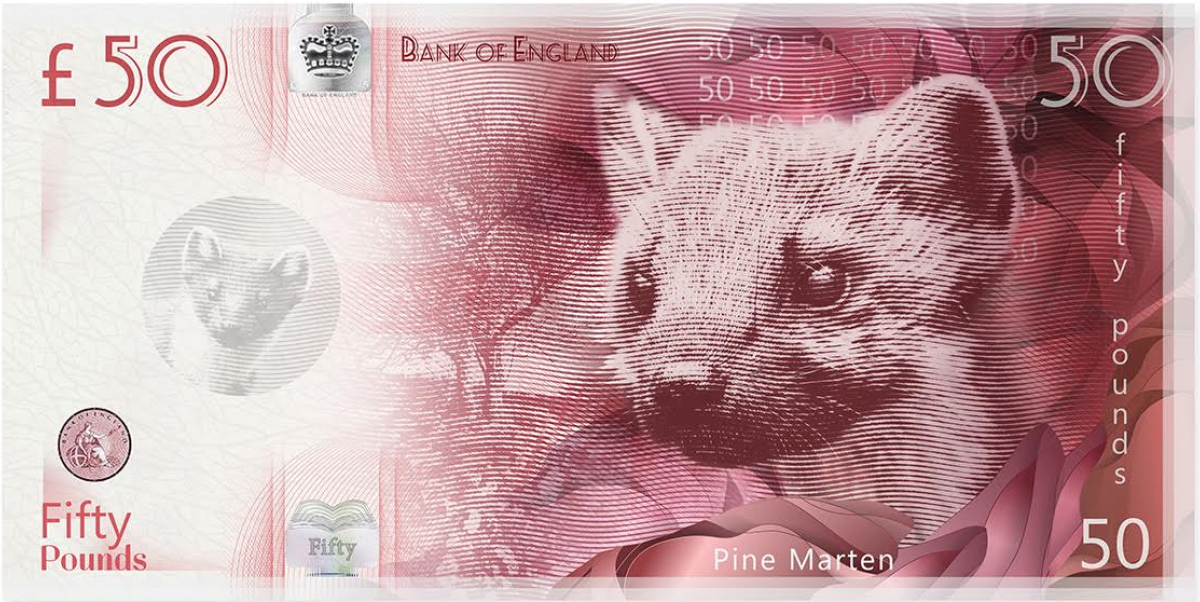Will banknotes save the UK’s most endangered species?
By Jacklin Kwan

Quick Quid, an online lender, has teamed up with NeoMam Studios to redesign the UK’s banknotes, featuring the country’s most endangered animals. Some of the animals that the company has targeted for their awareness campaign are species such as the red squirrel, the loggerhead turtle, and the pine marten.
Prompted by the Bank of England’s public invitation to offer new faces for the £50 note, Quick Quid opted to honour animals that face extinction in the near future. The team hopes to gain visibility for conservation campaigners using the 3.6 billion banknotes the UK has in circulation.
Jonny Addy, the managing editor of the project, feels that it is important to highlight that society not only has a “moral obligation of species conservation”, but that “biodiversity is important to a balanced ecosystem, and even humans rely on this.”
Animals which have been featured include the red squirrel, of which there are only 140,000 left in the wild. Invasive mammals like the Eastern grey squirrel have wrought havoc on numerous native species, outcompeting them for food and spreading deadly viruses to them. Attempts to save red squirrel populations have included culling grey squirrels in their habitat, though it remains a controversial strategy.
On the redesigned £10 note is the loggerhead turtle. The marine turtle faces a diversity of existential pressures. Historically, population decline was caused by fisheries’ by-catch and the harvesting of eggs. After UK legally protected the loggerhead turtle, the species has continued to decline due to the loss of nesting habitat to human development and climate change.
Instead of a scientist who is no longer living, Quick Quid has designed a £50 note with the pine marten. Once common throughout the UK, the pine marten is now endangered with a population of 3,600 (less than 100 in England and 60 in Wales). Similar to the loggerhead turtle, mass deforestation and hunting caused a dramatic decline in the late 1800s. Though the species has managed to thrive in the north of Scotland, numbers have dwindled in other parts of the UK. Their role in local ecosystems could be critical as they are the natural predators of grey squirrels, which could in turn help raise populations of red squirrels.
The UK is one of the most nature-depleted countries in the world. The State of Nature Report, compiled by more than 50 conservation organisations, reports that 15 per cent of the UK’s nature populations are extinct or endangered. Approximately 55 per cent of UK species have been declining since the 1970s. Sir David Attenborough, who helped launch the first State of Nature report in 2013, advocated for action to combat “escalating pressures, such as climate change and modern land management.”
Editor’s note: After this article was published online, it has been helpfully pointed out by one of our readers that red squirrels are not classified as endangered worldwide. While their populations are threatened specifically in the UK, red squirrels are listed as least concern on the IUCN Red List.







